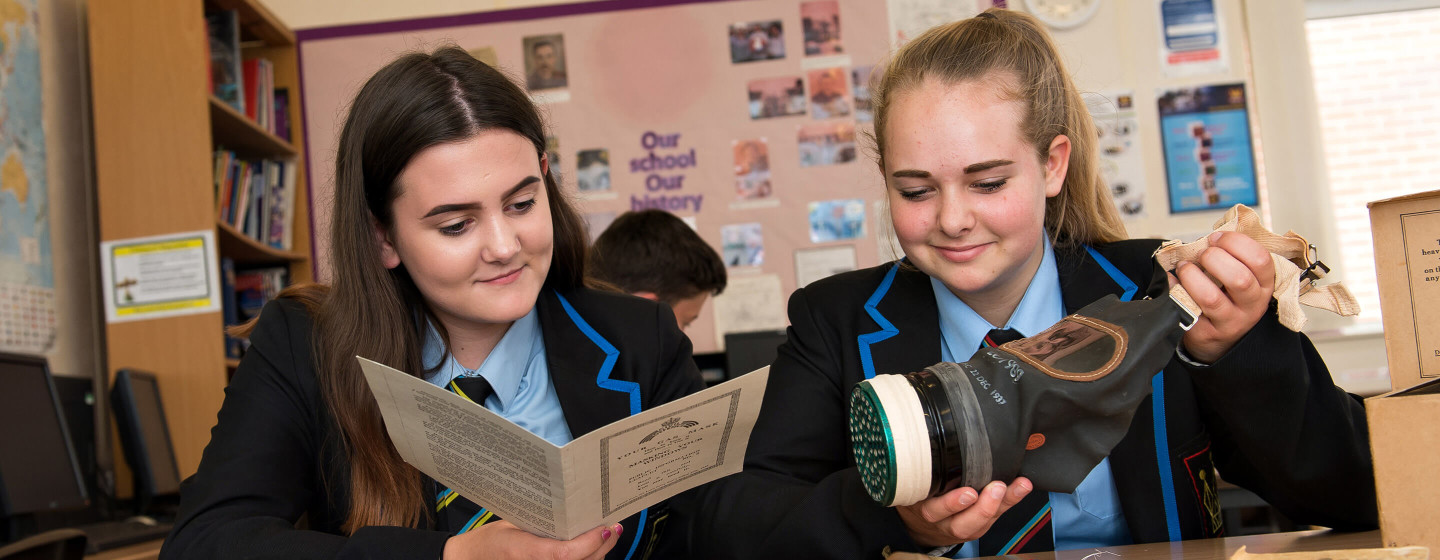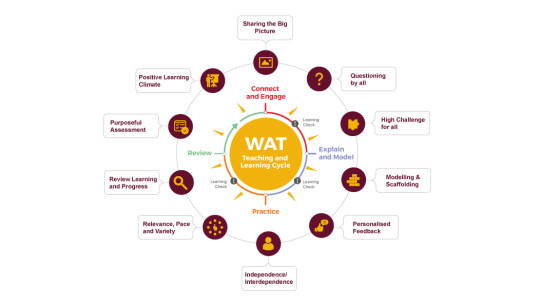Find out more about applying for a place at Kingswinford Academy here

Curriculum
Our Curriculum Intent
Our curriculum exists to ensure all students regardless of background and ability can aspire to ‘unlock their academic and personal potential’. It empowers and equips students with the knowledge, character virtues and learning skills required to thrive in learning and in life.
Our curriculum has been designed to provide all students – regardless of their background and ability- with access to a broad and balanced range of subject experiences and, ultimately, for them to achieve success in these areas. Our moral purpose and overall aim is to unlock the academic and personal potential of all our students. Our curriculum is designed to challenge, engage, enthuse and inspire students- every lesson of every day.
Our curriculum Intent has been informed by a wide variety of researchers and thought leaders and has been designed collaboratively by subject experts. Christine Counsell summarises the aspiration of our curriculum to empower all learners creating a pathway to success in university, their career and life:
A curriculum exists to change the pupil, to give the pupil new power. One acid test for a curriculum is whether it enables even lower attaining or disadvantaged pupils to clamber in to the discourse and practices of educated people, so that they gain powers of the powerful.
What do we have to offer?
The school curriculum is designed to provide the students with a broad and balanced range of subjects whilst offering them as they get older increasing opportunity to specialise according to their personal strengths, interests and ambitions. Please click on the subjects below to find out more information.
Key Stage 3 - Years 7 to 9
In their first three years, our students study:
- Art and Design
- Dance
- Computer Studies
- A number of Design and Technology subjects
- Drama
- English
- French
- Geography
- Health and Social Care
- History
- Mathematics
- Music
- Physical Education
- Religious Education
- Science
Key Stage 4 - Years 10 to 11
In Years 10 and 11 all students are prepared for an appropriate number of public examinations. The core subjects include English Language and English Literature, Mathematics, Science and Physical Education. All students also continue to follow the personal wellbeing and economic wellbeing programmes (RSHE). Elements of the curriculum, such as RSE, PSHE and Computing are taught via 'Aspire for Life' days where students follow an alternative timetable for several days each year to cover this content and develop skills in these areas, as well as via the tutor time programme. Students follow the DfE statutory curriculum and cover the content throughout the academic year. There are certain topics that are delivered cross-curricular, for example contraception and sexual health in science. Topics include healthy relationships, intimate and sexual health, mental health and internet safety.
A wide range of other examination courses are offered annually subject to viable numbers. Currently, the range includes:
Our Curriculum Implementation
Our curriculum intent will be implemented through ‘engaging, enthusing and inspiring every lesson, every day.’ Our teaching and learning cycle ensures that the curriculum is delivered effectively so that all students make progress.
360 Cycle
All students across all key stages maximise their learning by having the opportunity to revisit learning and correct their misunderstandings. The curriculum is organised into three cycles of learning, each cycle lasting 12-13 weeks in total. Within each cycle there are three distinct phases:
- Phase One (approx. 1 to 9 weeks) - Teach, embed, assess.
- Phase Two (approx. 1 week) - Performance stock take
- Phase Three (approx. 2 weeks) - Review and re-do


Years 7,8 & 9 Threshold Curriculum
Students in Year 7, 8 and 9 follow our ‘Threshold Curriculum' where deeper learning and understanding is promoted in each subject area.
Our Threshold Curriculum builds on the Key Stage 2 primary curriculum and provides the foundation for academic success in later examinations. It places the most fundamental parts of each subject at the core of learning in lessons. Students study a variety of challenging and engaging topics that are built around the key ideas and skills they need to progress in each subject. These are called the Threshold Concepts.
Learning is structured in three cycles throughout the year. Each cycle is composed of three key areas to ensure students are given time to reflect and respond to feedback from assessments.
The curriculum framework is outlined in the table below.
| Focus | Summary |
|---|---|
| Threshold concepts | Threshold concepts define potentially powerful transformative points in the student’s learning experience. They are the ‘jewels in the curriculum’ because they identify key areas that need mastery. Until students ‘get them’, they can struggle to understand a subject. |
| Mastery/Deep Learning | The route to deep learning and the development of expertise and mastery is to do fewer things in greater depth. Threshold Concepts are mastered through repeated sequencing, that allows the student to apply Threshold Concepts into different contexts. |
| Long term memory - sequencing - storytelling | Long term memory is the foundation for incorporating and making sense of new knowledge. Material sits in the long term memory when it has been ‘chunked’ into meaningful schemata, stories or concepts. Sequencing Threshold Concepts over the journey of the curriculum helps students to make progress and allows them to apply the Threshold Concepts into different contexts within and across subjects. |
| Challenge | The provision of difficult work that causes students to think deeply and engage in healthy struggle - a high challenge, low risk culture is created. |
| Tier 2 and Tier 3 vocabulary | To have access to and master deep subject knowledge, students need to be exposed to the cultural capital of language. Tier 2 are general academic words which occur across different subjects and are essential for reading comprehension. Tier 3 are subject specific words. The richness of vocabulary allows students to enter the academic discipline and address social mobility. |
|
ASPIRE Character (I am) |
The Windsor Academy Trust ASPIRE framework identifies six character virtues that are explicitly taught through the curriculum. The character virtues allow students to demonstrate being respectful, responsible, resilient, creative, compassionate and courageous (3 Rs and 3 Cs) |
|
ASPIRE Learning skills (I can) |
We also want our students to self regulate and be equipped with the meta cognitive skills to support them to engage fully with the curriculum, so that their knowledge of the Threshold Concepts are committed to long term memory. These skills are to 'be organised'; 'become unstuck'; 'self quiz'; 'give and receive feedback'; 'be collaborative'; and 'communicate clearly'. |
Feedback/Response
Students will receive feedback during their lessons, as part of the third phase of the learning cycle. This means that whatever the scores achieved, students will have the opportunity to reflect on their work and complete tasks that will close any gaps in their knowledge in the last two weeks of each cycle.
Target Setting
We do not set targets for students in Years 7 and 8. Instead, we believe that feedback on how to improve should be the focus of students’ efforts. This approach ensures that students are always looking for ways to improve and do not feel constrained by a target.
Targets are set for the end of Year 9, using a ‘milestone’ target. This target is set to challenge students and if met, it will see students meet or exceed their challenging GCSE targets which they will receive in Year 10.
Knowledge Organisers
Students are expected to:
- have a copy of their Knowledge Organiser and have it out on the desk for every lesson
- use their Knowledge Organiser to support 'self quizzing'
- use their Knowledge Organiser both during lessons and for remote learning activities
Years 10 and 11 curriculum
In Year 10 students move into Key Stage 4 where they undertake the study of full GCSE courses or vocational qualifications.
Some core subjects are mandatory and some are chosen through the options process. All students will study English, Maths, Science, Core Physical Education and Personal, Social, Health and Citizenship Education (PSHCE) . In addition, students will also pick four options subjects to study alongside this.
GCSEs and vocational qualifications (BTECs and Cambridge Nationals) are studied across the two years of Key Stage 4.

